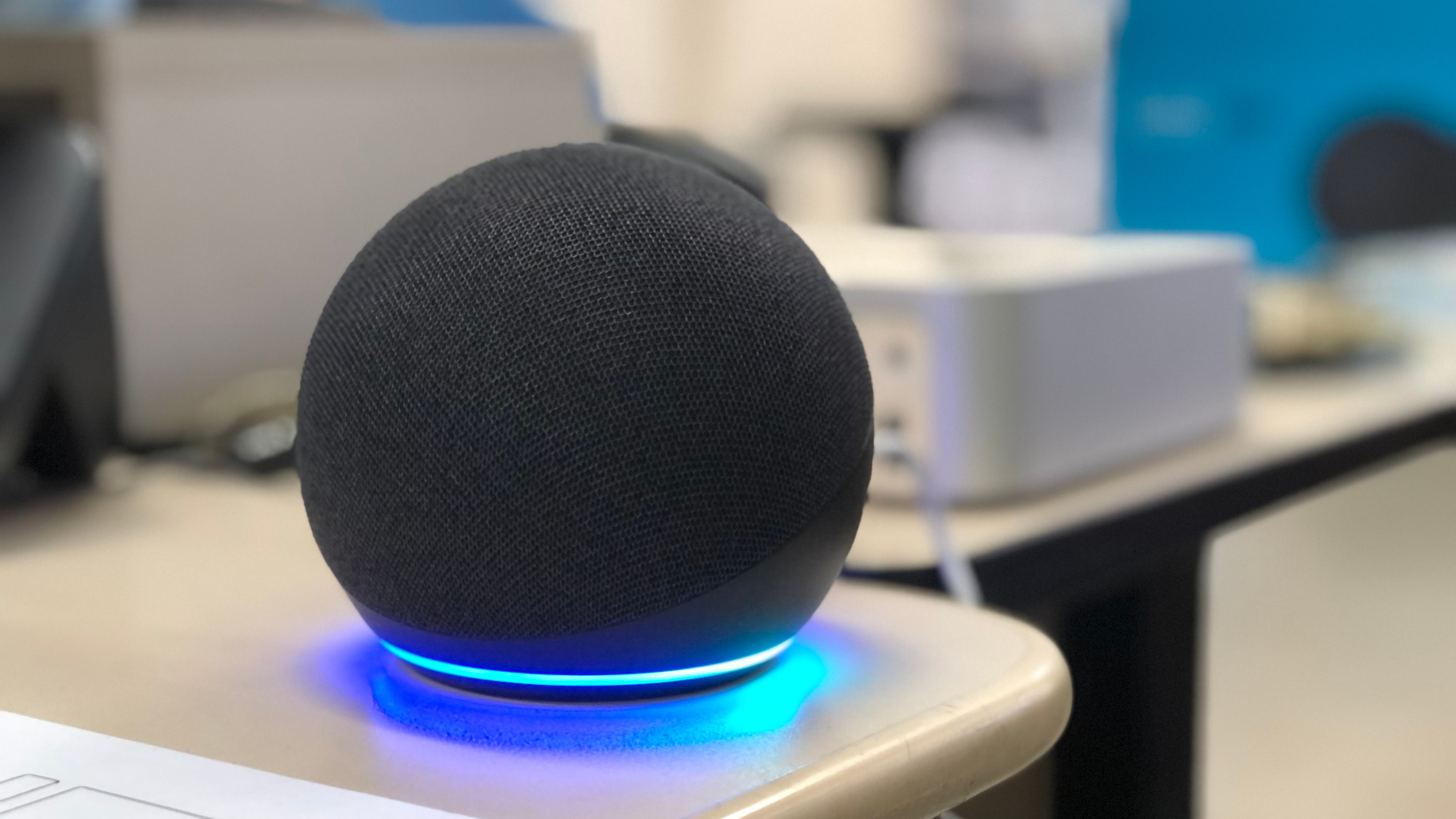People quickly grow tired of Alexa, report claims — and I'm not surprised
A report says Amazon Echoes are struggling to keep users engaged beyond basic core functions

Amazon’s virtual assistant, Alexa, has a retention problem, according to a new report from Bloomberg.
The site claims to have seen internal data and reports that express concern about user retention beyond core functionality, with one 2019 document observing that new users discover half the features they’ll ever use within three hours of activation. More damningly, in some years, 15% to 25% of new Alexa inductees were not using the virtual assistant in the second week, the site adds.
It’s important to note that Amazon responded to the report by stating that the documents in question were either outdated or inaccurate. “The assertion that Alexa growth is slowing is not accurate,” Amazon’s Kinley Pearsall told Bloomberg. “The fact is that Alexa continues to grow—we see increases in customer usage, and Alexa is used in more households around the world than ever before.”
Nonetheless, as a long-time Amazon Echo user who also knows others in the Alexa ecosystem, I think the criticism rings true. I’m just not sure how much it matters.
Alexa limitations
To set the scene a little, I have Echo devices in most rooms of my house, with a few unplugged and boxed away. That’s not (just) down to poor planning on my part, but a consequence of the fact that I keep reviewing new models when they emerge.
Anyway, the point is that I am very much plugged into the ecosystem, and love the core functionality that Alexa brings to my life. Setting timers, putting on soothing sleep sounds when insomnia strikes, playing music, reading audiobooks and turning off lights — these are all areas that Alexa excels in, and the last of these can’t be overstated given the distance from my bed to the nearest light switch. Not banging my knee on the bed frame is worth the price of admission alone. (Our look at the best Alexa skills shows exactly what the digital assistant can do for you.)
But it’s undeniably true that Alexa can prove underwhelming. This was obvious to me from the first time I showed my original Echo to guests: after I’d demonstrated the concept with a few test questions, they’d excitedly ask their own things. Only they wouldn’t know the exact way to phrase things to elicit a useful response. You can only hear the words “Hmmm, I don’t know that one” so many times before losing interest.
But even if you are fluent in the specific syntax that Alexa understands, the results can still be a disappointment. Alexa often mishears or misinterprets. A case in point, my Alexa shopping list — a function I never use — has two things on it: “Tidy up” and “Dog bosch” which isn’t something I suspect Amazon could help with. My to-do list, meanwhile, has two instructions: “five huxley cream” and “put the laundry light on in America.” Useful.
Amazon keeps trying to get me to try something new, with its weekly "new to Alexa" email, but I can’t say I’ve ever been tempted. It’s even started ill-advisedly advertising its other functions to users. “Almost every day after I ask quick things, I get, ‘By the way, I can recommend birthday gift ideas so you can buy more things from Amazon! Wouldn’t you love to hear that??’”, complains one Redditor, quoted by Bloomberg.
Alexa's core strengths
But ultimately, for me, none of this matters that much. The fact is that the Echo is one of the best smart speakers — a good quality, reasonably priced speaker that can play anything from the world of music just by me saying the words. Ten-year-old me would be blown away by that, without me needing to demonstrate any other functionality in this implausible time-travel scenario.
The point is that the core functionality is fine, and it doesn’t matter if Alexa never gets any smarter or learns any new party tricks. For me, it’s an integral part of my smart home and I’m extremely happy with it — virtual warts and all.
Sign up to get the BEST of Tom's Guide direct to your inbox.
Get instant access to breaking news, the hottest reviews, great deals and helpful tips.
Freelance contributor Alan has been writing about tech for over a decade, covering phones, drones and everything in between. Previously Deputy Editor of tech site Alphr, his words are found all over the web and in the occasional magazine too. When not weighing up the pros and cons of the latest smartwatch, you'll probably find him tackling his ever-growing games backlog. Or, more likely, playing Spelunky for the millionth time.

